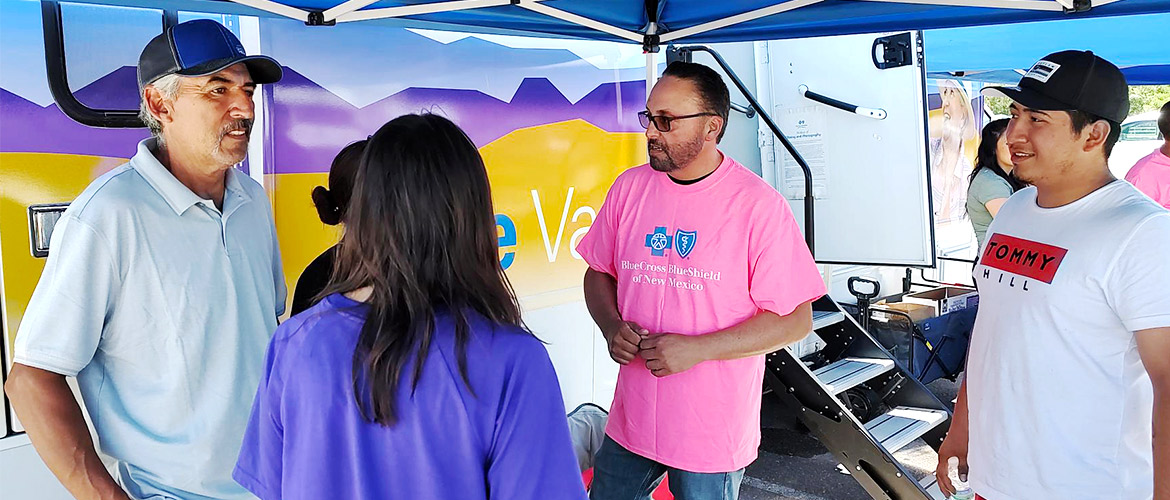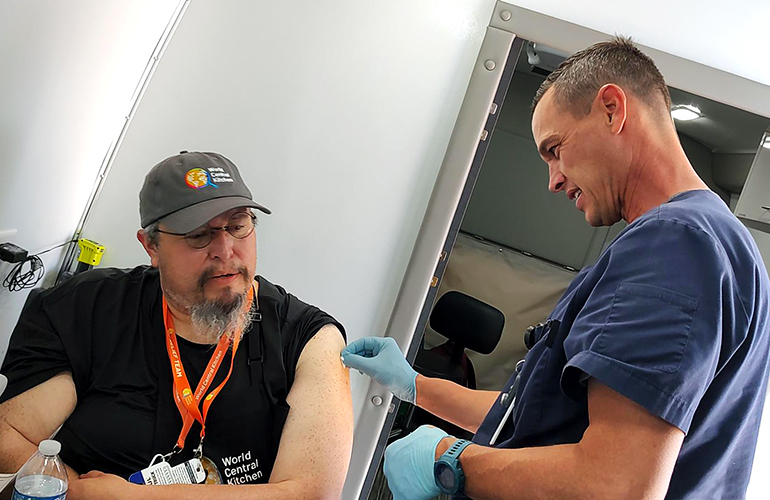No matter the natural disaster or health emergency, dozens of outreach specialists and care coordinators at Blue Cross and Blue Shield of New Mexico time and again have quickly mobilized to support communities in need across the state.
Their all-hands-on-deck response comes from a heartfelt desire to help members, friends, neighbors and strangers reeling from natural disasters like a devastating wildfire or the COVID-19 outbreak, says Sabrina Romero, a director of behavioral health clinical operations for government programs.
“We ask, ‘Who can go? What are the immediate needs? What can we take?’” says Romero, who recently helped organize support efforts after a summer wildfire near Ruidoso prompted evacuation of 2,600 residents. “When something happens, we know how to respond. It is committed to memory.”
For two weeks, she and other employees rotated shifts to staff a temporary site at a fire evacuee resource center in Roswell, three hours from BCBSNM’s Albuquerque headquarters. They helped people access care, linked them to resources and distributed water and personal items. BCBSNM outreach specialists and care coordinators also partnered with state agencies and providers to offer health screenings in the BCBSNM Care Van®.
“Our goal is to help people through this event and then finds ways to provide ongoing resources for support,” Romero says. “We can’t talk to people about their behavioral health needs if they don’t have shoes. We want to get them to that place. What they’ve been through is traumatizing.”
Dr. Brooke Parish, an executive medical director for behavioral Health for BCBSNM, understands employees’ passion for supporting their communities in crisis. As a member of the U.S. Department of Health and Human Services’ disaster medical assistance teams, she has served on the front lines of some of the most devastating national and global health emergencies.
“If you see suffering, you want to do something,” she says. “You want to find ways of meeting the needs of members.”
Compassion and a helping hand
Every year, New Mexico’s dry and hot conditions routinely spark wildfires, often requiring an emergency response. And at the height of the 2020 COVID-19 pandemic, employees drove hours to take supplies to some of the state’s most remote Native American communities, which had been disproportionately affected by the virus.
“Our team is always willing to help,” Romero says. “It can be anywhere in the state, especially with fires. We’re usually ready to go.”
On site, the team’s work can be as simple as showing a little compassion or offering a helping hand. Romero and her colleagues took turns holding a woman’s 3-month-old son as she spent hours applying for state and federal assistance after losing her home in the Ruidoso fire.
“We did what we could to help her as she got what she needed in that moment,” Romero recalls. “Resiliency is built in these kinds of moments.”


